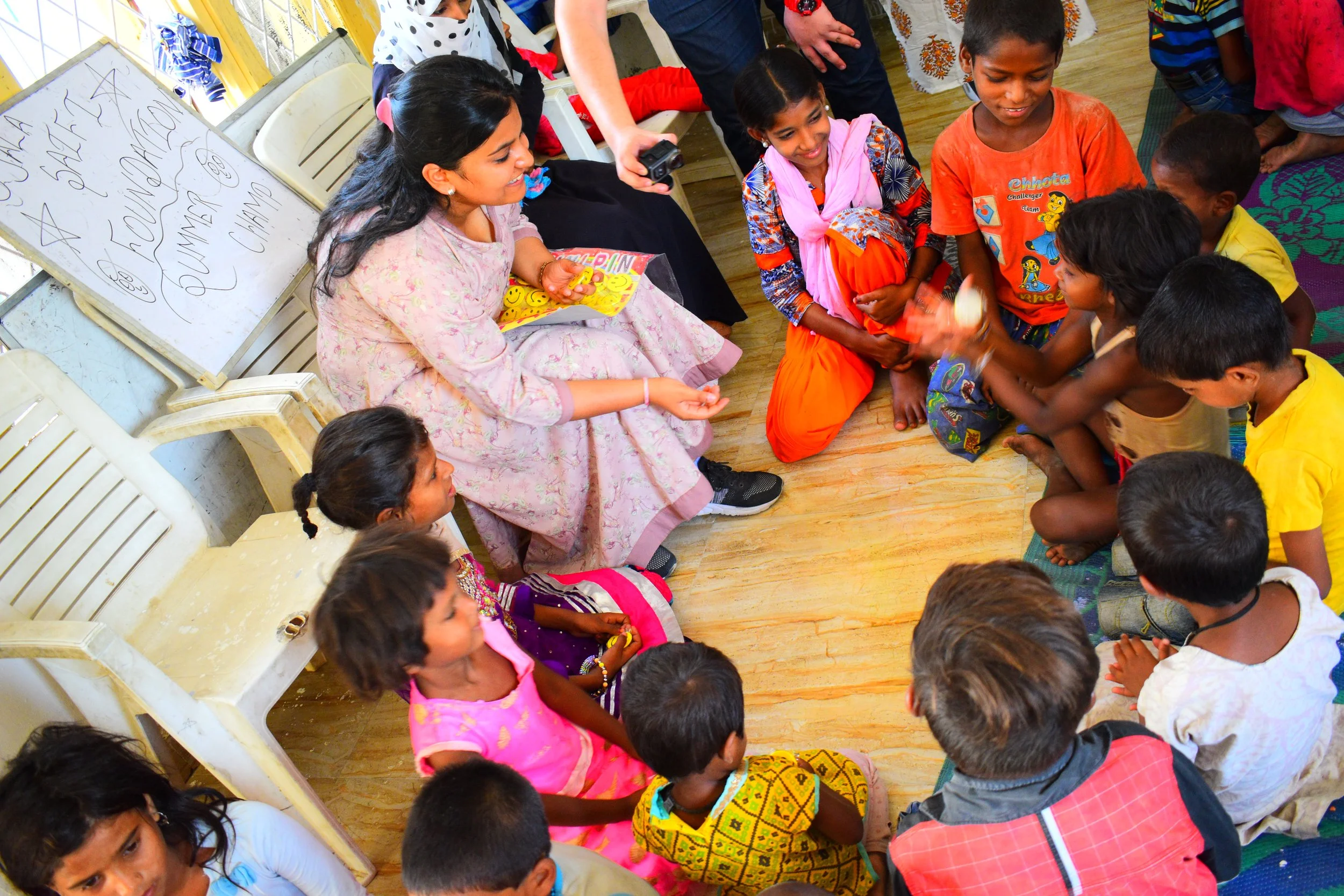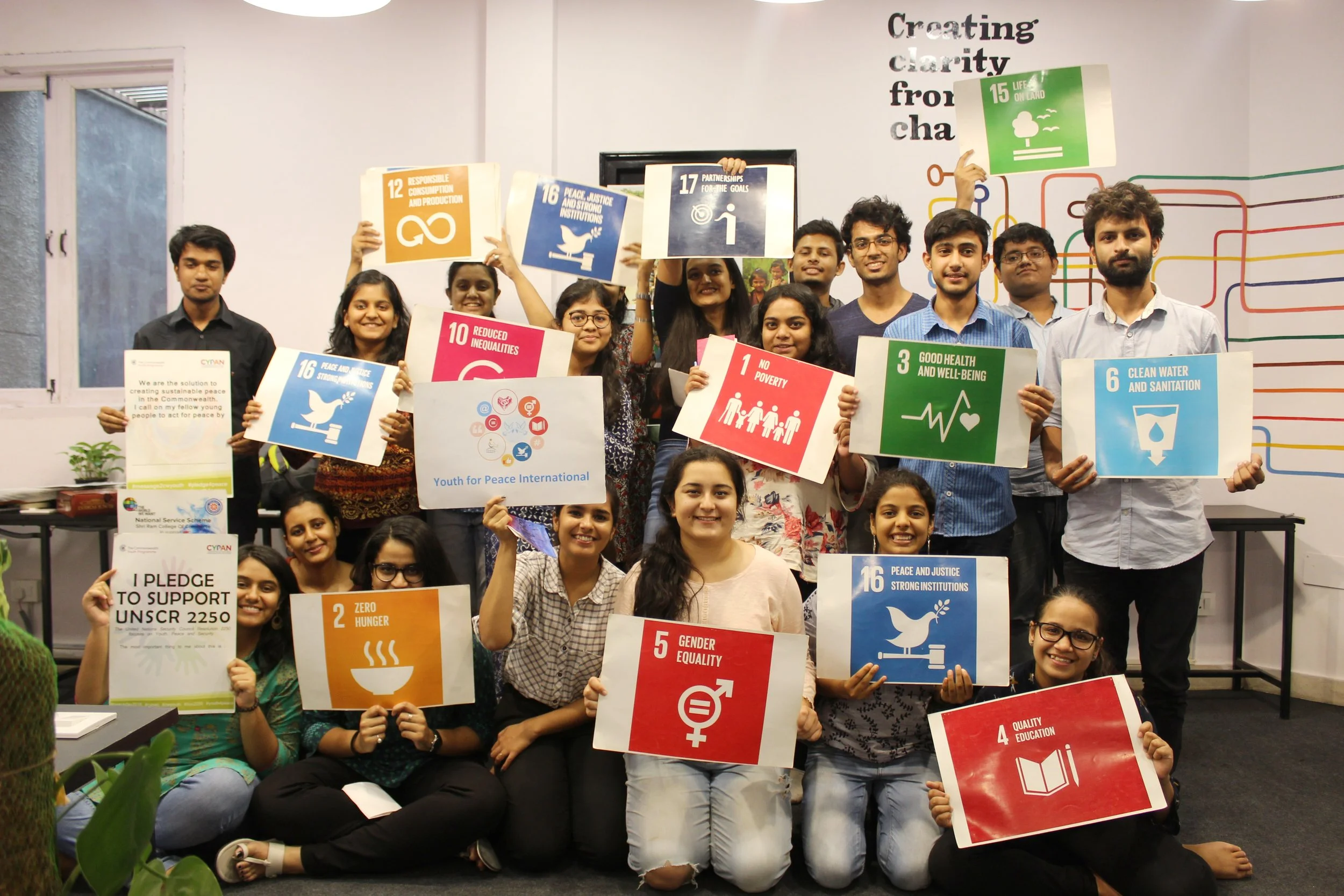Saumya Aggarwal
Pronouns: She/Her
Organisations: Youth for Peace International; Indian Coalition on Youth, Peace and Security; United Network of Young Peacebuilders (UNOY); U.S. Institute of Peace
Country of origin: India
Profile
Saumya Aggarwal is the co-founder and CEO of Youth for Peace International, a youth-led peacebuilding organisation that helps empower individuals and create peaceful and sustainable societies. After completing her bachelor’s degree in Commerce at Ramjas College, New Delhi, India, Saumya worked as a volunteer in peacebuilding. She said she realised India was not a bubble of peace, as the government proclaims, but rather, full of conflict and inequality. However, when Saumya engaged with these problems, she faced several social barriers that prevented her from gaining credibility as a young activist woman. She started her Youth for Peace International in 2015. It focuses on peace education, conflict transformation and policy advocacy for youth peacebuilding at the regional, national and global levels. As Saumya wanted to create spaces in which young people are seen as valuable partners, she also helped initiate the Indian Coalition on Youth, Peace and Security, a space which envisions implementing UNSCR 2250 on Youth, Peace, and Security in India. She has worked as coordinator for Asia with the United Network of Young Peacebuilders (UNOY) and also coordinates the Youth Country Liaison Initiative at the U.S. Institute of Peace.
Story
When Saumya Aggarwal was at college she became more aware of the importance of peacebuilding. She said she grew passionate about finding engaging spaces after she met young people from conflict-affected areas. She worked with her peers as volunteers, but they soon realised that they were not being taken seriously. Despite around one-third of the Indian population being youth, young people are neglected and seen ‘just as volunteers, […] but not usually as leaders, positive agents of change or as partners.’
Saumya and her peers felt concerned with how low India scored on the peace index – 135th out of 162 countries. They were frustrated by the government’s negligence of the problem and the lack of agency and credibility they were receiving. Saumya said she eventually started her own organisation called Youth for Peace International, which focuses on empowering individuals and creating sustainable societies. She said the first step for them was realising the gap itself – which different communities are facing violence? And how does one tackle such complex issues? This was a slow and arduous process, but they realised ‘that’s our calling, that’s where we see ourselves in the future as well’.
When she started her organisation, Saumya faced remarks from her community, doubting her commitment. They called her an opportunist who was only building a profile to leave and pursue a prestigious master’s degree. But with time, people realised that her organisation was continuously addressing community needs rather than leaving; this created trust.
Youth for Peace International engages through capacity building, ground action, and advocacy. Capacity building develops with training programs on conflict transformation and peace education. In their ground action, they were involved in rehabilitation support for Rohingya refugees through trauma healing, peace education, and bridging inter-community conflict. In another project during Covid-19, they created a free mental health phone line, operated by young people, which reached 1.3 million people throughout India.
They advocate for meaningful youth engagement and for the implementation of the Youth, Peace, and Security (YPS) agenda that is declared in UNSCR 2250, of which India is a legal signatory. With the Indian Coalition on YPS, Saumya wants to ‘bring different stakeholders together under the one umbrella, where we can have commitments from them.’ While doing so, they try to stay away from jargon and UN language in order to increase the transparency of their advocacy.
Given the impact of Youth for Peace International, it is surprising to hear that Saumya is the only person working full-time. Two people work half-time and there are four to five volunteers. However, Saumya said, ‘we don’t call them volunteers, but fellows, because volunteering is not a two-way learning process.’ In the future, Saumya wants to scale up the impact of her organisation while also making peacebuilding a more self-sustaining domain. Meanwhile, she said she gets motivated by the transformation she witnesses, the realisation that her work is important and that she is indeed a positive agent of change.
Published in 2025





